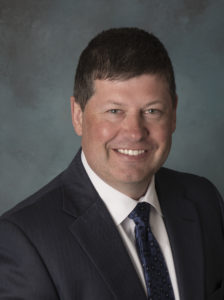In a situation where a client’s family member allegedly takes advantage of them, advisors might not necessarily be able to take action.

Gregory B. Gagne, ChFC
When a client’s son allegedly took advantage of him, MDRT President Gregory B. Gagne, ChFC, a 24-year MDRT member from Exeter, New Hampshire, couldn’t speak up because the client, who had transferred power of attorney from his other son, told Gagne his advisor could no longer speak to the son who lost the power of attorney.
“When the client has a privacy policy and says you can’t talk to their children, there’s not much you can do,” Gagne said, noting that he had to tell the spurned son who suspected the alleged abuse, “I can’t talk to you about this.” “And if the client calls up and says, ‘Give me money,’ there’s not much you can do either. It’s their money, not your money.”
Because of this incident, when working with elderly clients, Gagne now obtains written permission to speak with anyone in the family if he suspects an abusive situation is taking place. “Typically what happens is one of the children takes over, but with this process, there are checks and balances,” he said. “Had we had this in this case, the money that was allegedly misappropriated never would have been taken.”






Similar Posts
Give clients a reason to like you
Are you losing potential clients when they ask what you do for a living?
MDRT ideas for connecting better with clients